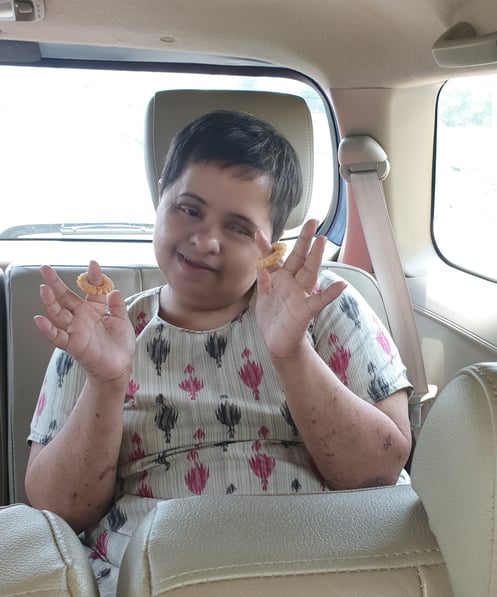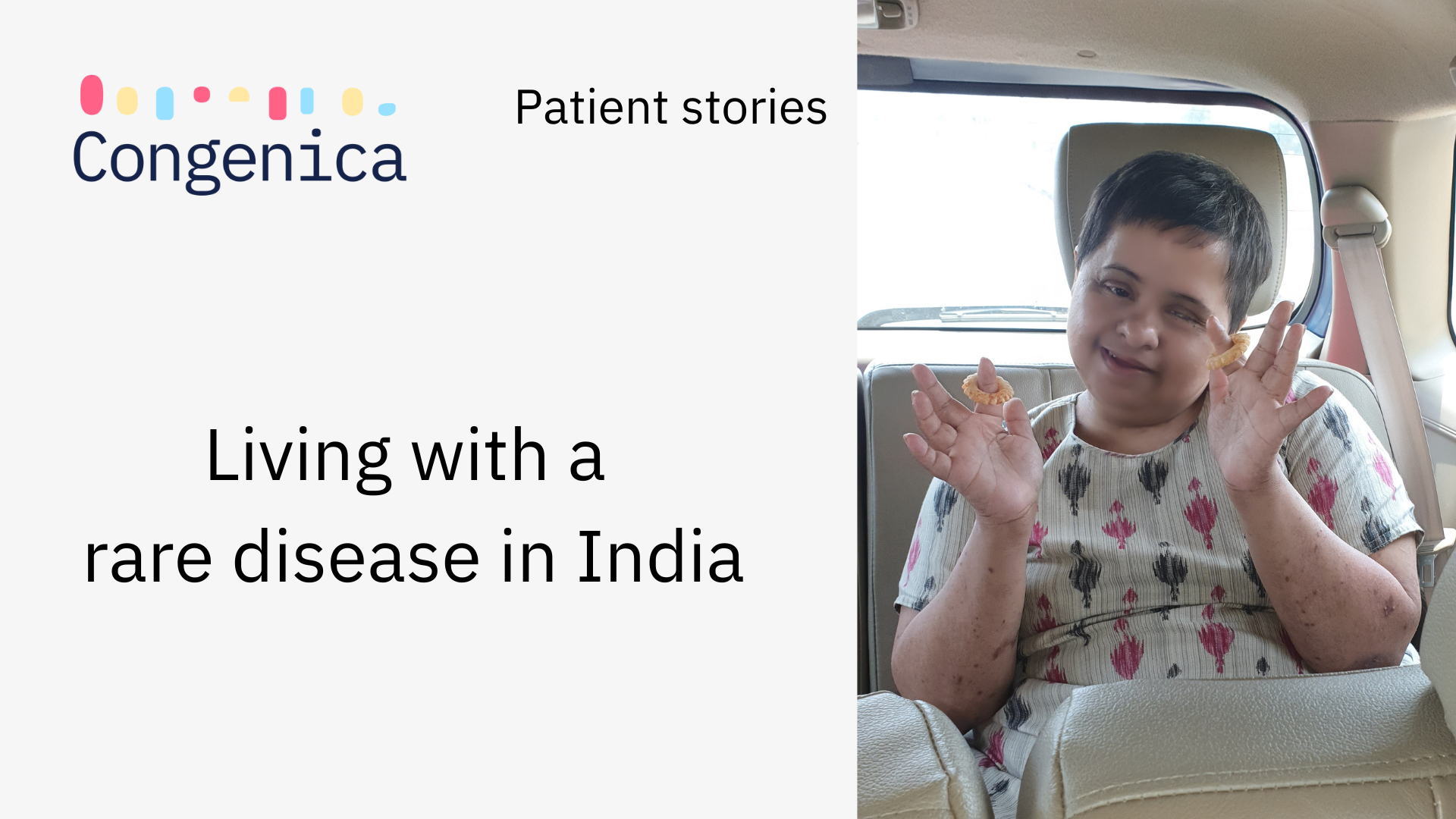As part of our 'Global Barriers to The Adoption of Genomic Medicine' initiative, we welcome guest blogger Swapna Roopesh, MSc Biomedical Genetics, a rare disease advocate and MPH Student at Johns Hopkins Bloomberg School of Public Health in Baltimore, MD, USA.
Here she shares with us her personal experience of genomics and living with a rare disease in India.
13 years ago, my perceived understanding of rare disease was completely transformed when I met Kalaivani – a Down Syndrome adult and my husband’s only sister.
 Being a Genetics Postgraduate, I knew a lot about rare diseases but this meeting made me realize that understanding someone with a genetic anomaly is beyond textbooks, and that the knowledge I possessed was just a needle in a haystack. I think for many patient advocates and family members like us, we learn more all the time; new revelations appear every day and with each passing hour.
Being a Genetics Postgraduate, I knew a lot about rare diseases but this meeting made me realize that understanding someone with a genetic anomaly is beyond textbooks, and that the knowledge I possessed was just a needle in a haystack. I think for many patient advocates and family members like us, we learn more all the time; new revelations appear every day and with each passing hour.
For me, living in a close-knit family means sharing the psycho-social experiences with other families who live with rare diseases in a developing country like India. We are faced with stigma, guilt, superstitious beliefs, insecurities, lack of clinical knowledge amongst physicians, poor support, and interventions encumber us in many aspects of life.
Photo caption: Kaliavani in a car in India
We can only hope that increasing awareness of genetic disorders will, one day, allow people with rare diseases to lead a dignified life!
India’s need for genomics
During my pregnancy a decade ago, thanks to advances in genetics, my clinician prescribed me a Trisomy 21 Screening, albeit in a non-genetic counseling setup.
A country that has a high inbreeding practice needs the expertise of genetic experts and counselors. For families who ‘grin and bear it’ and live with rare diseases, the advent of genomics and genome sequencing offers immense hope. But whether these advances are translating into clinical decision-making is questionable.
Cost is the biggest barrier
India, with varied socio-economic statuses, is largely populous with rare diseases and hence genomics needs to be tailored to the needs of the country. High throughput technology is unable to break the diagnostic odyssey for people in the lower section of the country; many basic tests, let alone Whole Exome Sequencing (WES) / Whole Genome Sequencing (WGS), remain unaffordable. To add to the challenges, we have amongst clinicians and the lay public sparse awareness of the need for molecular testing.
As for the treatment, many genetic diseases have no options at all. If it’s available, it is either inaccessible or exorbitantly priced. There are more than 7,000 rare diseases that we know of, and the number gets bigger by the day. We live in the right time and age of digital prowess that gives stakeholders of the rare disease community the power to collaborate, with the mindful mission of making lives better.
Proceed with caution
Stakeholders are curious whether the use of genomics is actually going to change lives for the better, or whether patients and families merely act as a rare gold mine. Applications of genomics in the 21st century must be handled with care, always putting the patients first. If genomics could help in drug discovery, the data has an equal risk of vulnerability. Although the prospect of having over-the-counter solutions for rare diseases sounds promising, the ethical implications are slightly perturbing. If gene therapy has the potential to cure single gene disorders, the potential social and health outcomes are in jeopardy.
With a lot of difficulty, rare disease families attain the virtue of acceptance which in turn empowers them to be loving and compassionate. I recall my own experience of having an unconscientious moment during prenatal screening exemplary for the loss of empathy in a yearning for a picture-perfect society. Eventually the endeavor to break stigmas shouldn't give way for novel genetic biases.
Delivering life-changing answers
A desire to improve the lives of people living with rare and inherited diseases is central to everything we do at Congenica. Find out about some of our work.

.png?width=320&height=192&name=Untitled%20design%20(8).png)
.png?width=320&height=192&name=Since%202016%2c%20the%20number%20of%20women%20working%20in%20STEM%20fields%20in%20the%20UK%20has%20increased%20by%20216%2c552%2c%20taking%20the%20total%20number%20over%20the%201%20million%20mark%20for%20the%20first%20time.%20Women%20now%20make%20up%2024%25%20of%20the%20STEM%20workforce%20i%20(2).png)
-1.png?width=320&height=192&name=Deciphering%20Developmental%20Disorders%20(1)-1.png)